2017
Fiona McIntosh and The Tea Gardens
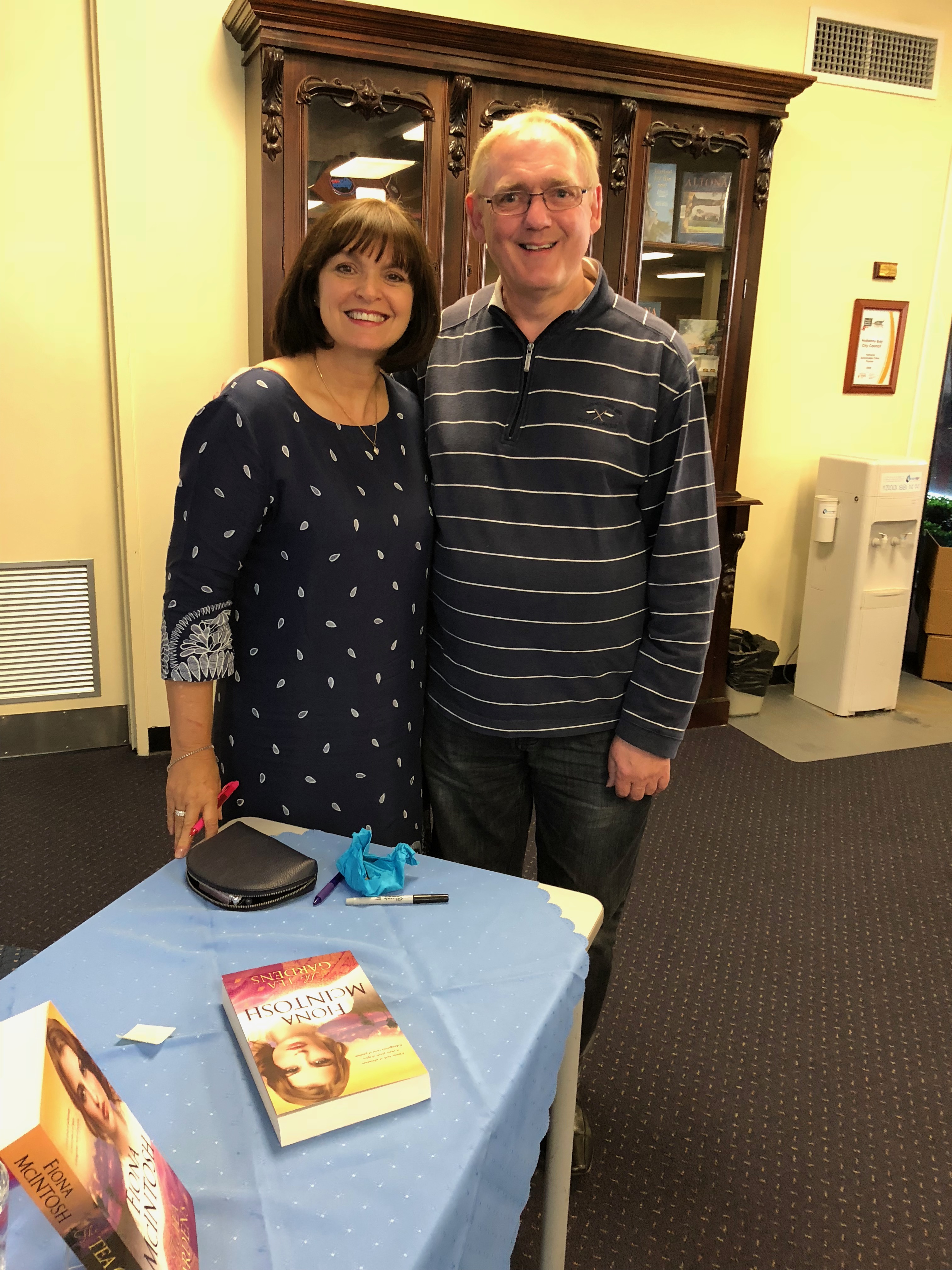
On a recent visit to Melbourne for a medical conference, I had the pleasure of meeting best-selling Australian author Fiona McIntosh. Coincidentally I just finished reading her latest novel The Tea Gardens on my flight across the Tasman.
The Tea Gardens has particular significance for me. Like the novel's heroine, Isla Fenwick, as a young doctor I worked in India in a region of overwhelming need.
Fiona's evocative descriptions brought back that heady mixture of awe and panic as the sights, sounds and smell of India flood the senses. Even more revealing, the novel captures that strange combination of professional competence and emotional naivety that so many medical graduates experience on entering the outside world.
We meet Isla as she faces a personal dilemma on her return from India. In her own words, she recalls her defining rite of passage. Her journey begins in the grey streets of London in 1933 where her widowed father engineers a meeting with an old flame, the aptly named Jovian Manderville. But Isla made a promise to strike back at the tropical disease that took her mother's life.
We live and breathe Isla's journey to Calcutta and share her joy and despair as she sets up a midwifery clinic. Her attempt to save a girl whose pregnancy violates the caste system ends in tragedy and endangers the life of a brilliant but maverick colleague, Professor Saxon Vickery. Facing personal and professional ruin, Isla follows Vickery to the foothills of the Himalayas, where she finds love, forgiveness and guilt in a resolution that questions all that she holds dear.
Thankfully, my time in India was much less dramatic than Dr Fenwick's but proved none the less life-changing.
Fiona regaled a delighted audience at the Altona Library with tales of her trip to India to research The Tea Gardens. Her anecdotes ranged from the ingenious to the outrageous, seducing a member to gain entry to a gentleman's club in Calcutta. Fiona told us that she does not write about anywhere that she has not experienced first hand. It shows in her work. When you finish The Tea Gardens you too have travelled from the grime of Britain to the squalor of Calcutta and the ethereal beauty of the Himalayas.
I have to admit to a tinge of jealousy for Fiona's lifestyle. I'll have to set my next story further afield.
Hīkoi is more relevant than ever!
06/08/17 14:47 Filed in: Film Making | Hīkoi
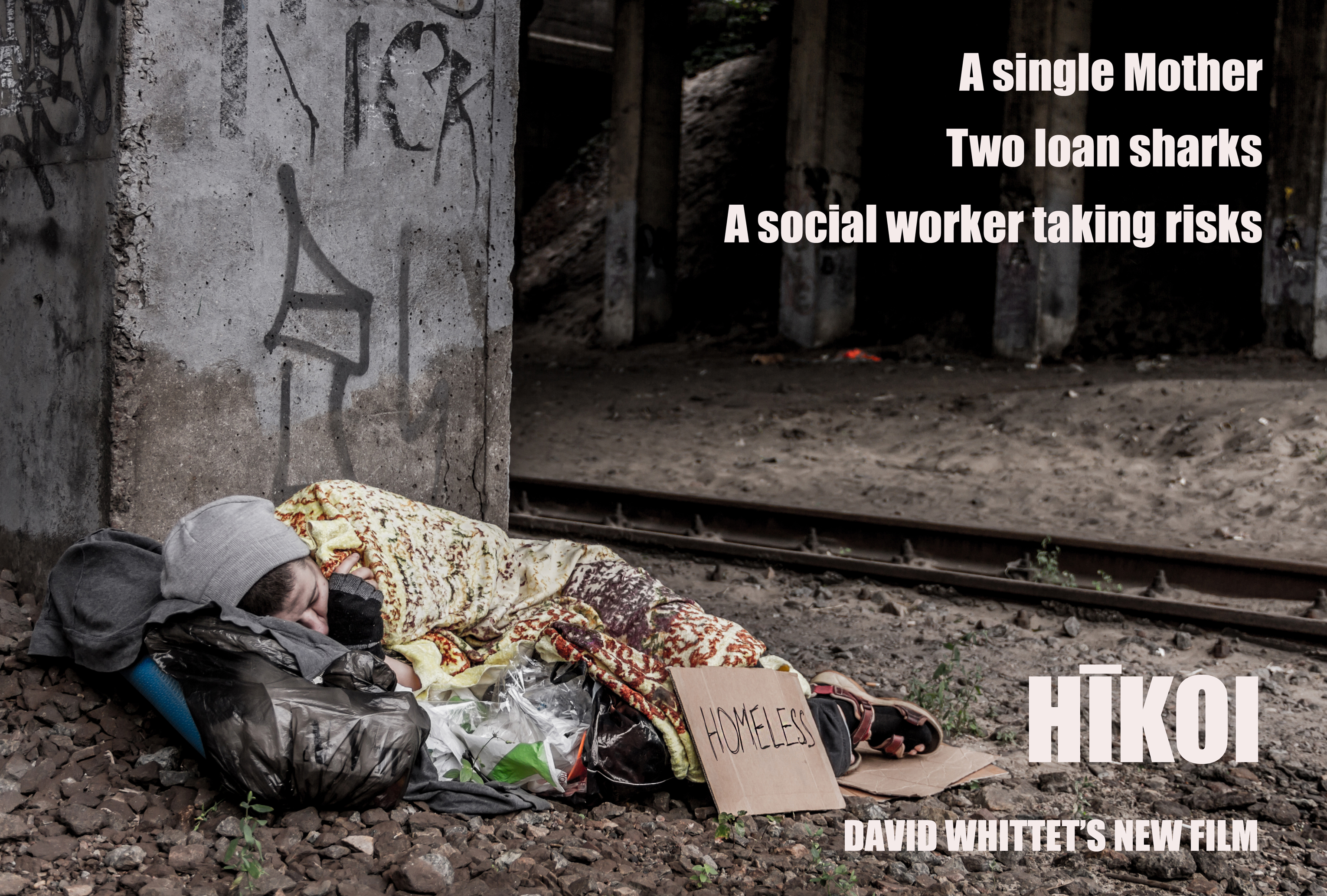
Hīkoi becomes more relevant by the minute. Inspired by the child poverty debate in the run up to the last general election, my screenplay includes several real life events woven into the story: the 2014 minor party leaders debate, the Hīkoi of protest to end child poverty and the presentation of a petition with fifteen thousand signatures to the government.
In the film, a young Māori social worker strives to make a difference, taking risks to help a single mother hounded by loan sharks. He's enraged by empty promises from the politicians during the election campaign, all claiming that they care. Abandoned by his employer, alone and bereft of support, he takes the blame when everything crashes down around him. He drops out after losing his licence, forcing him to join cardboard city with his former clients.
With the extraordinary political developments in New Zealand over the last week, accompanied by some angry rants on social media, I have been working out how my protagonist would react to all of this. What would he be tweeting? Perhaps I need to update the script to include the latest events––or start work on the sequel as the original goes into production!
What does Hunapo have for breakfast?
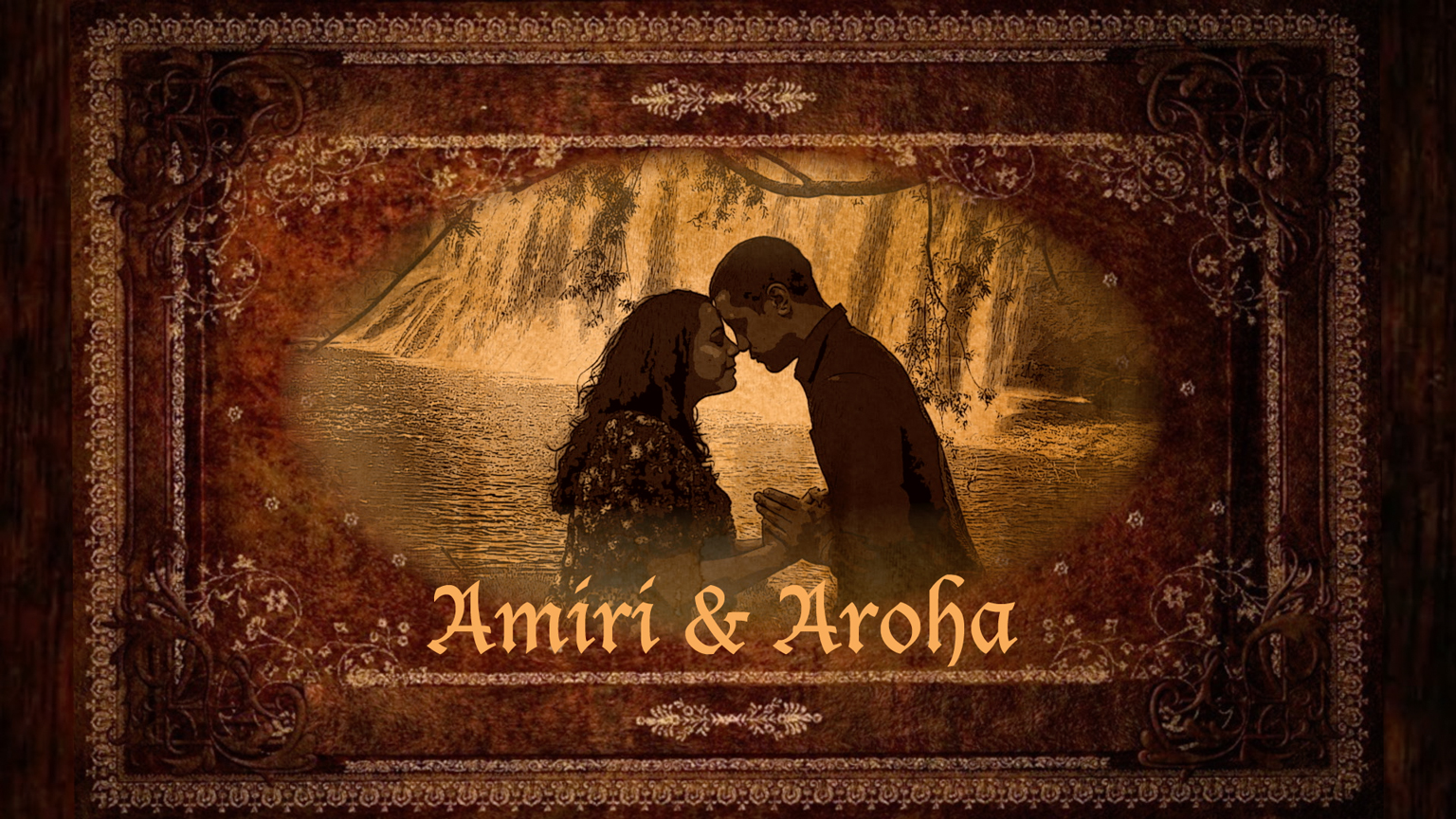
"Authors shouldn't write dialogue; they should let their characters speak for themselves."
Giving characters their own distinctive voice is the most profound lesson I have learnt from working with industry professionals. An interesting exercise at a table read of the Hīkoi screenplay was to remove the character headings from the actors' copies of the script and to see if it remains apparent to them when they are speaking.
Fascinating characters are essential for any work of fiction. I believe the success of Amiri & Aroha on the international film festival circuit is due to the audience's involvement with the characters. A competition judge told me he shed tears when the gang thwarted Aroha's childhood friendship with her cousin Hunapo.
Writing the novel has afforded the opportunity to develop these complex characters further. Understanding how they talk and react to adverse situations allows them to speak for themselves, adding tremendous depth to the story.
My old mentor, the late great David Lean, gave me this advice: "You must know what your characters eat for breakfast. It's not that you're going to show them having breakfast, but if you are to portray them accurately, you need to know them in that much detail."
During the shooting of Amiri & Aroha, I can recall some lively discussions between takes on what the protagonists would have for their breakfast. We all agreed that Amiri would be an eggs benedict man. We decided Aroha was more a muesli and toast girl, and there was no doubt that Hunapo would have eggs and lashings of bacon with black pudding, washed down with a swig of yesterday's beer.
A "Cathy Come Home" for our times!
24/06/17 23:18 Filed in: Film Making | Hīkoi

Hīkoi is a hard-hitting drama that addresses the most critical issues facing New Zealand society today: homelessness, child poverty and burnout in the under-resourced social workers who have to deal with the fallout.
For such an inspirational and relevant project, I hope to get funding from the New Zealand Film Commission and New Zealand on Air. I am currently pitching my screenplay to prospective production partners. An influential producer has enthusiastically described my script as a Cathy Come Home for our times.
It is immensely humbling to have my work compared to Ken Loach's groundbreaking film. Cathy Come Home gave rise to the Shelter movement, founded by a New Zealander, Des Wilson.
I would be delighted if Hīkoi could bring about such positive social change.
Farewell Sundance, Hello New Orleans!
12/03/17 09:48 Filed in: Film Making | Hīkoi

Farewell Sundance, Hello New Orleans!
Preproduction on Hīkoi is reaching fever pitch. Inspired by the feedback from the Table Read My Screenplay Competition at the Sundance Festival, I have completed an extensive rewrite of the Hīkoi script.
Mentoring by industry professionals has taught me the importance of tightening the action to keep the audience's attention firmly focused on the film's message. With some intense new scenes and razor-sharp dialogue, the latest draft of Hīkoi has a compelling storyline about an idealistic young social worker who loses his girlfriend and licence when he takes risks to save a teenage mother and her baby from a gang of ruthless loan sharks.
I am confident that this thought-provoking story will resonate with cinema goers in New Zealand and beyond.
As the excitement of the Sundance competition begins to fade, anticipation mounts for the upcoming Table Read My Screenplay at the New Orleans Film Festival in October 2017.
American festivals have always supported my work generously. With such a vibrant culture and a dynamic music scene, New Orleans could be the perfect location to launch the Hīkoi music video!
Proofing Amiri & Aroha
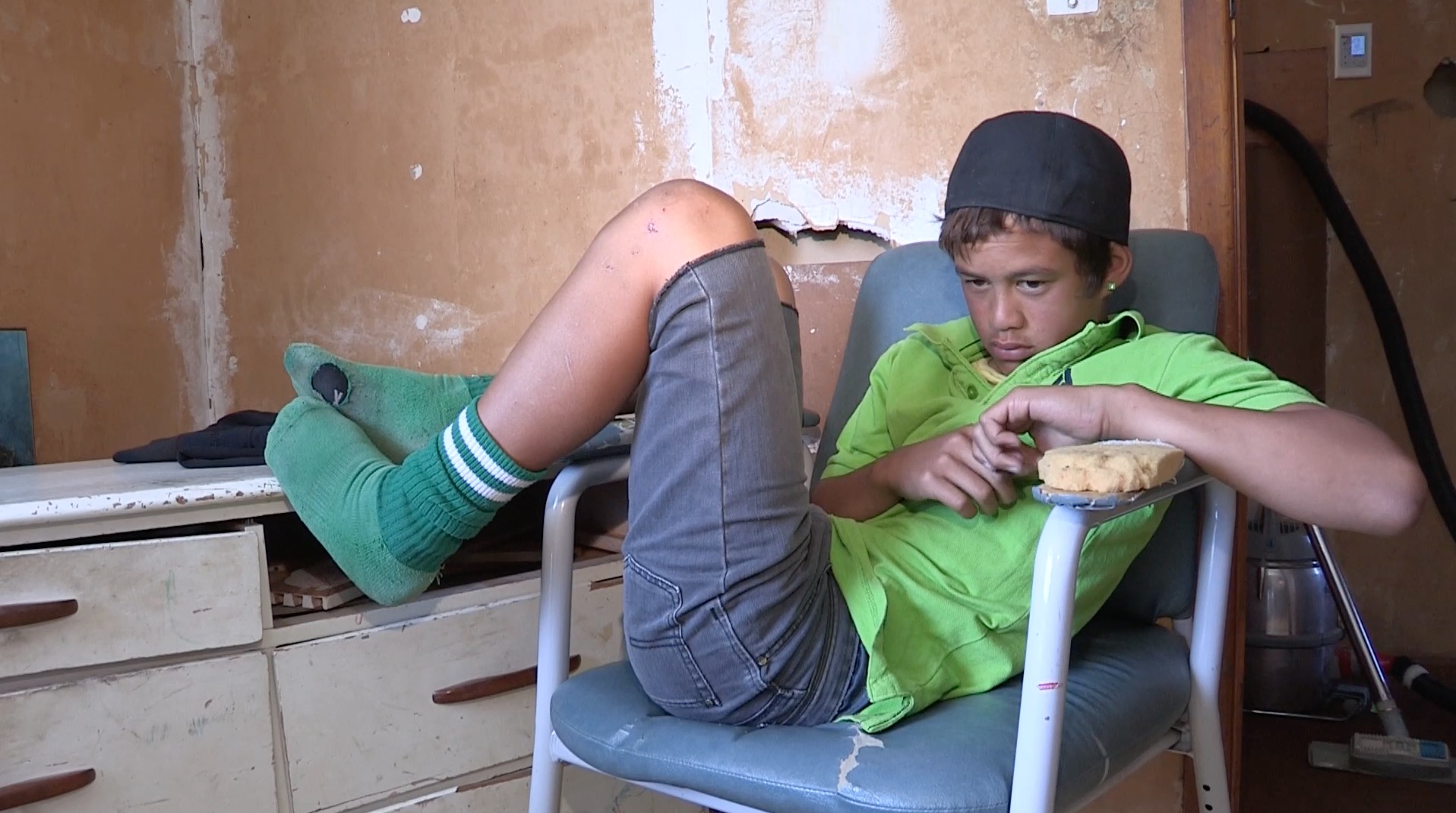
Mathew Wikotu as the young Hunapo.
Alongside working on Hikoi, I've spent the last few weeks proofreading Amiri & Aroha. It's been a labour of love on a project that has been such a vital part of my life over the past decade.
The strength of a story depends on the depth of its characters. Correcting and enhancing the manuscript has afforded me a unique opportunity to reflect on the character arcs in the novel.
Amiri & Aroha depicts a woman’s lifelong struggle to escape the misery of her gang roots, a journey defined by greed, corruption and the redeeming nature of love. A diverse cast of characters shape Aroha's rite of passage: her father Tautaru, a loathsome gang leader; her downtrodden mother Ngaio; Kōkā, a mysterious matakite; and Amiri, the hotshot businessman she believes will bring her freedom.
Of all the leading protagonists in Amiri & Aroha, Hunapo is perhaps the most complex, and judging from the response of my early reviewers, he is also one of the most engaging.
Hunapo is Aroha's cousin and her only childhood friend. It's hard to resist the mischievous rascal at the beginning of the story. But life is unkind to Hunapo. Chosen as the puppet leader of the gang and forced into an abortive arranged marriage, he lashes out at those closest to him and betrays Aroha. Seeking solace with alcohol and debauchery, Hunapo degenerates into a drunken lothario but ultimately finds redemption as a latter-day Robin Hood, risking his life to give back the protection money extorted by the gang.
One of the joys of independent filmmaking is the discovery of raw talent. I was fortunate to find two brilliant actors to play Hunapo in the films.
As the young Hunapo, Mathew Wikotu's soulful expression captured the dilemma of a lost kid in a hostile world, his childhood stolen by a bitter family feud.
Shayne Biddle, fresh from his role in the critically acclaimed New Zealand film The Strength of Water, took on the challenge of the adult Hunapo. Shayne's remarkable screen presence further defined this tragically flawed but genuinely appealing hero.
I remain hopeful that following the publication of the novel, we can entice a studio to pick up the story for a fully funded feature film. I would be delighted to have both Mathew and Shayne in the cast.
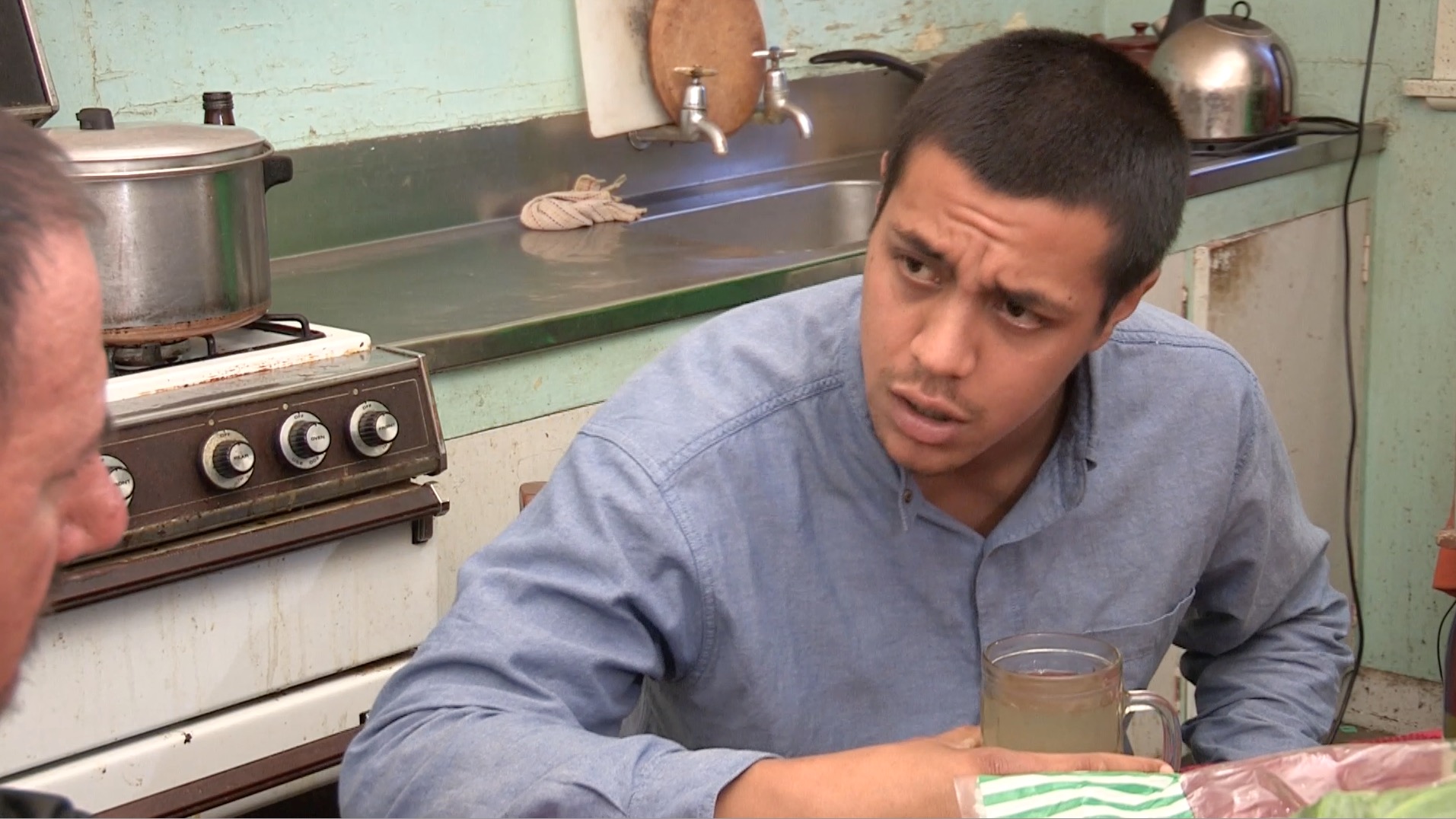
Shayne Biddle as Hunapo
Hikoi at Sundance
28/02/17 13:41 Filed in: Film Making | Hīkoi
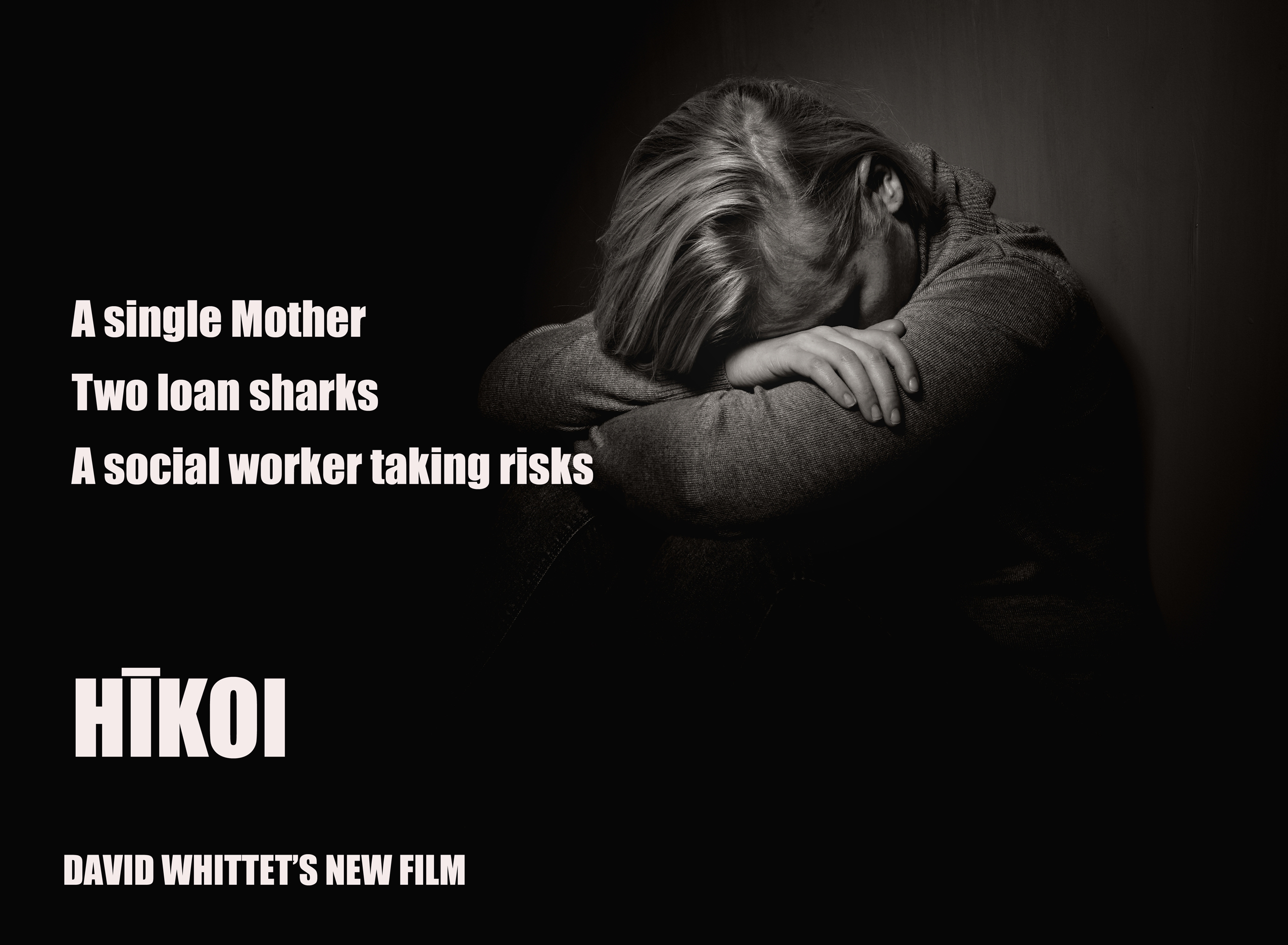
As the Hikoi music video nears completion, preproduction for the Hikoi feature film is underway.
I have had excellent feedback from the Table Read My Screenplay competition at the Sundance Film Festival. The prize of a teleconference with a Hollywood screenwriter has afforded the opportunity for me to work one to one with a leading professional on the next draft of the Hikoi script.
As we are in an election year in New Zealand, Hikoi is as topical as ever. Inspired by the multi-party leaders' debate in the run-up to the last General Election, Hikoi is a hard-hitting drama that deals with child poverty, deprivation and burnout among the professionals who attempt to deal with with the issue.
I am looking for a co-producer and hope to pitch for funding from the NZ Film Commission for a very relevant New Zealand story.
It would be great to see Hikoi in production before this year's election!
Postproduction on the Hikoi Music Video
26/02/17 19:42 Filed in: Film Making | Hīkoi
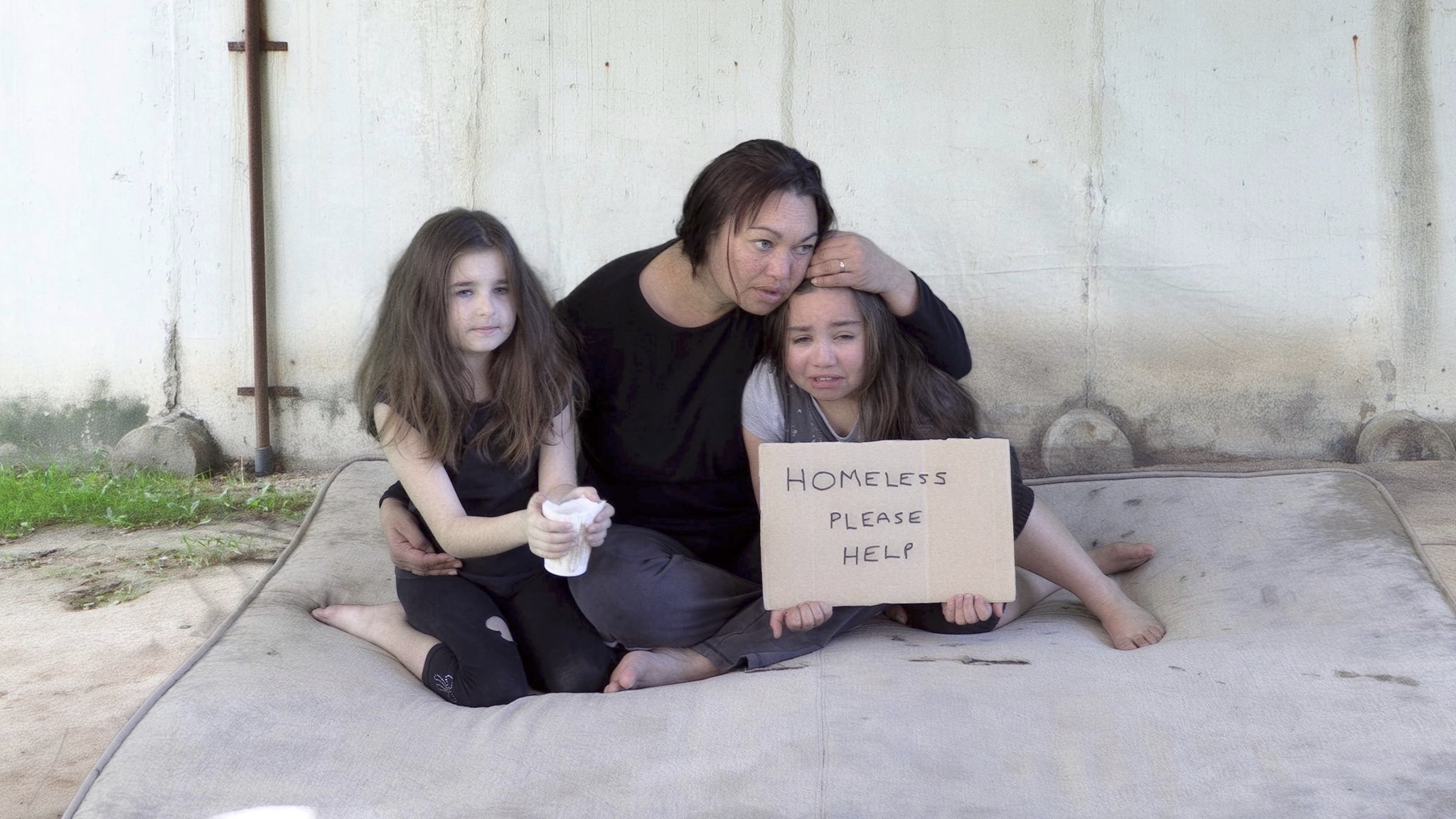
The Hikoi music video grows stronger with each successive edit. The raw images have a unique dramatic potency, which shines through even in the rough cut; a poignant visual poem that speaks eloquently for the underprivileged in our society.
As postproduction progresses, I have been working on the visual texture of the video, a gritty realism to reflect the hardship of life on the streets.
Feedback from early reviewers in the music industry has been invaluable, and I look forward to bringing you a preview before the video hits the international music festival circuit.
